John Ruskin - Lectures on Art, Delivered Before the University of Oxford in Hilary Term, 1870
Здесь есть возможность читать онлайн «John Ruskin - Lectures on Art, Delivered Before the University of Oxford in Hilary Term, 1870» — ознакомительный отрывок электронной книги совершенно бесплатно, а после прочтения отрывка купить полную версию. В некоторых случаях можно слушать аудио, скачать через торрент в формате fb2 и присутствует краткое содержание. Жанр: foreign_antique, foreign_home, literature_19, visual_arts, на английском языке. Описание произведения, (предисловие) а так же отзывы посетителей доступны на портале библиотеки ЛибКат.
- Название:Lectures on Art, Delivered Before the University of Oxford in Hilary Term, 1870
- Автор:
- Жанр:
- Год:неизвестен
- ISBN:нет данных
- Рейтинг книги:4 / 5. Голосов: 1
-
Избранное:Добавить в избранное
- Отзывы:
-
Ваша оценка:
- 80
- 1
- 2
- 3
- 4
- 5
Lectures on Art, Delivered Before the University of Oxford in Hilary Term, 1870: краткое содержание, описание и аннотация
Предлагаем к чтению аннотацию, описание, краткое содержание или предисловие (зависит от того, что написал сам автор книги «Lectures on Art, Delivered Before the University of Oxford in Hilary Term, 1870»). Если вы не нашли необходимую информацию о книге — напишите в комментариях, мы постараемся отыскать её.
Lectures on Art, Delivered Before the University of Oxford in Hilary Term, 1870 — читать онлайн ознакомительный отрывок
Ниже представлен текст книги, разбитый по страницам. Система сохранения места последней прочитанной страницы, позволяет с удобством читать онлайн бесплатно книгу «Lectures on Art, Delivered Before the University of Oxford in Hilary Term, 1870», без необходимости каждый раз заново искать на чём Вы остановились. Поставьте закладку, и сможете в любой момент перейти на страницу, на которой закончили чтение.
Интервал:
Закладка:
39. Of these, the first, the Pride of Faith, is now, as it has been always, the most deadly, because the most complacent and subtle;—because it invests every evil passion of our nature with the aspect of an angel of light, and enables the self-love, which might otherwise have been put to wholesome shame, and the cruel carelessness of the ruin of our fellow-men, which might otherwise have been warmed into human love, or at least checked by human intelligence, to congeal themselves into the mortal intellectual disease of imagining that myriads of the inhabitants of the world for four thousand years have been left to wander and perish, many of them everlastingly, in order that, in fulness of time, divine truth might be preached sufficiently to ourselves: with this farther ineffable mischief for direct result, that multitudes of kindly-disposed, gentle, and submissive persons, who might else by their true patience have alloyed the hardness of the common crowd, and by their activity for good balanced its misdoing, are withdrawn from all such true services of man, that they may pass the best part of their lives in what they are told is the service of God; namely, desiring what they cannot obtain, lamenting what they cannot avoid, and reflecting on what they cannot understand . 5 5 This concentrated definition of monastic life is of course to be understood only of its more enthusiastic forms.
40. This, I repeat, is the deadliest, but for you, under existing circumstances, it is becoming daily, almost hourly, the least probable form of Pride. That which you have chiefly to guard against consists in the overvaluing of minute though correct discovery; the groundless denial of all that seems to you to have been groundlessly affirmed; and the interesting yourselves too curiously in the progress of some scientific minds, which in their judgment of the universe can be compared to nothing so accurately as to the woodworms in the panel of a picture by some great painter, if we may conceive them as tasting with discrimination of the wood, and with repugnance of the colour, and declaring that even this unlooked-for and undesirable combination is a normal result of the action of molecular Forces.
41. Now, I must very earnestly warn you, in the beginning of my work with you here, against allowing either of these forms of egotism to interfere with your judgment or practice of art. On the one hand, you must not allow the expression of your own favourite religious feelings by any particular form of art to modify your judgment of its absolute merit; nor allow the art itself to become an illegitimate means of deepening and confirming your convictions, by realising to your eyes what you dimly conceive with the brain; as if the greater clearness of the image were a stronger proof of its truth. On the other hand, you must not allow your scientific habit of trusting nothing but what you have ascertained, to prevent you from appreciating, or at least endeavouring to qualify yourselves to appreciate, the work of the highest faculty of the human mind,—its imagination,—when it is toiling in the presence of things that cannot be dealt with by any other power.
42. These are both vital conditions of your healthy progress. On the one hand, observe that you do not wilfully use the realistic power of art to convince yourselves of historical or theological statements which you cannot otherwise prove; and which you wish to prove:—on the other hand, that you do not check your imagination and conscience while seizing the truths of which they alone are cognizant, because you value too highly the scientific interest which attaches to the investigation of second causes.
For instance, it may be quite possible to show the conditions in water and electricity which necessarily produce the craggy outline, the apparently self-contained silvery light, and the sulphurous blue shadow of a thunder-cloud, and which separate these from the depth of the golden peace in the dawn of a summer morning. Similarly, it may be possible to show the necessities of structure which groove the fangs and depress the brow of the asp, and which distinguish the character of its head from that of the face of a young girl. But it is the function of the rightly-trained imagination to recognise, in these, and such other relative aspects, the unity of teaching which impresses, alike on our senses and our conscience, the eternal difference between good and evil: and the rule, over the clouds of heaven and over the creatures in the earth, of the same Spirit which teaches to our own hearts the bitterness of death, and strength of love.
43. Now, therefore, approaching our subject in this balanced temper, which will neither resolve to see only what it would desire, nor expect to see only what it can explain, we shall find our enquiry into the relation of Art to Religion is distinctly threefold: first, we have to ask how far art may have been literally directed by spiritual powers; secondly, how far, if not inspired, it may have been exalted by them; lastly, how far, in any of its agencies, it has advanced the cause of the creeds it has been used to recommend.
44. First: What ground have we for thinking that art has ever been inspired as a message or revelation? What internal evidence is there in the work of great artists of their having been under the authoritative guidance of supernatural powers?
It is true that the answer to so mysterious a question cannot rest alone upon internal evidence; but it is well that you should know what might, from that evidence alone, be concluded. And the more impartially you examine the phenomena of imagination, the more firmly you will be led to conclude that they are the result of the influence of the common and vital, but not, therefore, less Divine, spirit, of which some portion is given to all living creatures in such manner as may be adapted to their rank in creation; and that everything which men rightly accomplish is indeed done by Divine help, but under a consistent law which is never departed from.
Конец ознакомительного фрагмента.
Текст предоставлен ООО «ЛитРес».
Прочитайте эту книгу целиком, купив полную легальную версию на ЛитРес.
Безопасно оплатить книгу можно банковской картой Visa, MasterCard, Maestro, со счета мобильного телефона, с платежного терминала, в салоне МТС или Связной, через PayPal, WebMoney, Яндекс.Деньги, QIWI Кошелек, бонусными картами или другим удобным Вам способом.
1
The full meaning of this sentence, and of that which closes the paragraph, can only be understood by reference to my more developed statements on the subject of Education in "Modern Painters" and in "Time and Tide." The following fourth paragraph is the most pregnant summary of my political and social principles I have ever been able to give.
2
"τἑχναι ἑπἱρρητοι," compare page 81.
"τέχναι ἐπίρρητοι,"
****************************************************************
3
There were, in fact, a great many more girls than University men at the lectures.
4
Only the Gospels, "IV Evangelia," according to St. Jerome.
5
This concentrated definition of monastic life is of course to be understood only of its more enthusiastic forms.
Интервал:
Закладка:
Похожие книги на «Lectures on Art, Delivered Before the University of Oxford in Hilary Term, 1870»
Представляем Вашему вниманию похожие книги на «Lectures on Art, Delivered Before the University of Oxford in Hilary Term, 1870» списком для выбора. Мы отобрали схожую по названию и смыслу литературу в надежде предоставить читателям больше вариантов отыскать новые, интересные, ещё непрочитанные произведения.
Обсуждение, отзывы о книге «Lectures on Art, Delivered Before the University of Oxford in Hilary Term, 1870» и просто собственные мнения читателей. Оставьте ваши комментарии, напишите, что Вы думаете о произведении, его смысле или главных героях. Укажите что конкретно понравилось, а что нет, и почему Вы так считаете.
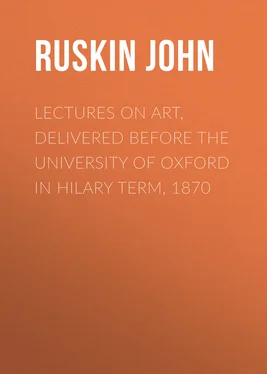



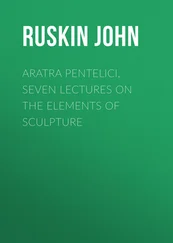
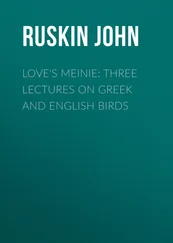

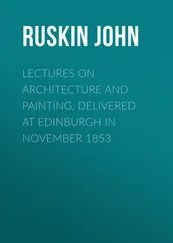

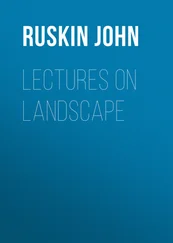


![John Bruce - The Lettsomian Lectures on Diseases and Disorders of the Heart and Arteries in Middle and Advanced Life [1900-1901]](/books/749387/john-bruce-the-lettsomian-lectures-on-diseases-and-disorders-of-the-heart-and-arteries-in-middle-and-advanced-life-1900-1901-thumb.webp)